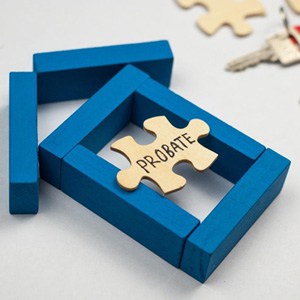
- The steps required to probate a will.
- The difference between probating a will and the administration of an estate.
- Untransferable assets and invalid wills.
What Is The Process To Probate A Will?
The process of probating a will begins with locating the original will. If the original cannot be found, a copy of the will can be probated instead. Once the original or a copy is located, it should be delivered to the Clerk of Court in the county where the probate will be filed. The venue for probate in the state of Florida is proper in any county where the deceased owned property. This could be where they lived, but it could also be in a different county where they owned property, such as a bank account or townhouse.
Along with the will, a short form death certificate must also be provided to the court to prove the death of the deceased. If the will is self-proven, it may not require the oath of a witness to the signing of the will in order to be deemed valid by the judge. If the will is not self-proving, an oath of a witness or a notary may be required to validate the will.
Once the will is deemed valid, the court will admit it to probate. The personal representative listed in the will can then submit a petition to be appointed by the court. The judge will review the petition, death certificate, and the will and, if the will is self-proving, will appoint the personal representative unless there is an objection. If the will is not self-proving, the court may require an oath from one of the witnesses or the notary to validate the will.
It is important to note that if the will is not valid according to the state’s will formalities, the estate will be considered intestate, meaning there is no valid will. In such a case, the estate will be handled according to the intestacy statutes of Florida.
What Is The Difference Between The Probate Of A Will And The Administration Of An Estate In Florida?
The probate of a will and the administration of an estate refer to the process of managing and distributing the assets of a deceased person. If a person died with a valid will, the process is referred to as probate of a will or testate administration. On the other hand, if the person died without a will, the process is referred to as administration of an estate or intestate administration.
It’s a common misconception that having a will automatically avoids probate. While a will can simplify the probate process, it does not necessarily eliminate the need for probate. Probate is often necessary to transfer assets that are not designated to a beneficiary or held in trust.
For instance, if a person died owning a bank account without a designated beneficiary, the account would be considered an asset of the estate and would require probate to be distributed to the named beneficiaries or the intestate beneficiaries according to the laws set by the state of Florida.
In addition, not all assets can be transferred through probate avoidance methods like naming a beneficiary or establishing a trust. For instance, an employee stock ownership plan may not allow you to assign a beneficiary, and a house may require probate unless it’s transferred through an enhanced life estate deed or a Ladybird deed.
If you need help navigating the Probate or Estate Administration Process in Florida, a skilled attorney for Probate Law can provide you with the guidance and support you need. To get started, schedule an initial consultation by calling (561) 907-7848.
Call Now To Schedule A Consultation
(561) 907-7848 | (239) 933-8753
